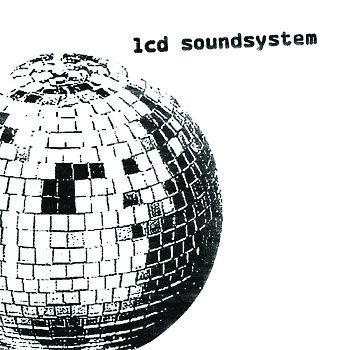Time Capsule: LCD Soundsystem’s eponymous debut turns 10

January 5, 2015
It is impossible to feel contempt for LCD Soundsystem. No matter what your opinion is of frontman James Murphy’s three-albums-and-done dance-punk collective, you still aren’t going to roll your eyes at an upfront and razor-sharp song like “Losing My Edge.”
That’s because, at a time when every post-punk revivalist and New Sincerity hand waver was trying to convince you that they were cool (I’m looking at you, Conor Oberst), LCD Soundsystem couldn’t even convince themselves that they were cool. Over their decade-long existence, they crafted an identity out of reluctance, anxiety and compromise, which all but razed the barrier dividing audience and performer.
Delightfully apathetic toward the time, but, with 35 years of experience, James Murphy became the anti-rockstar we all wanted: someone with a keen ear, a faith in dance-floor transcendentalism and a lack of faith in pretty much everything else.
Now he’s moved on. LCD is no more. But on the 10th anniversary of their self-titled debut’s release, it’s worth taking a look back to the band’s humble beginnings.
On Nov. 8, 2004, LCD Soundsystem released “Movement,” the first single from their debut. Here, buzzsaw synths and 808 claps bash out a proto-punk stomp while Murphy shames the lack of critical thinking among modern rock bands (“It’s like a movement without the bother of all of the meaning!”). Yet he goes to no length to exclude himself (“It’s like a fat guy in a T-shirt doing all the singing!”).
His voice is phlegmy and occasionally dips into rock affectation. One moment, however, always strikes me as exceedingly sincere: during the climax of his squawking anti-guitar solo, he can be heard faintly off-mic saying “Here’s the change! Ba-ba-ba-ba-ba-ba-ba-ba.” He comes across desperate to impress and fails to do so. His earnest attempt to salvage a so-far-terrible solo only sends the song into further disarray. Thirty seconds later, an unceremonious decelerando arrives with the band increasingly unsure of why they’re playing.
This is how LCD Soundsystem works: they don’t express sentiments so much as concerns, and the songs resolve once the ambivalence has been sufficiently rendered, even if that takes 10-plus minutes. On “Yeah,” it’s the clash between rage and apathy. On “On Repeat,” it’s between faith and faithlessness. On “Too Much Love,” it’s between a culture and its past.
Its albums grew less caustic and more delightfully self-defeating as time passed. Yet LCD Soundsystem was still a necessary record, which ushered in new music of posing questions — of disciplined conflict resolution. To be original or to re-hash the work of one’s idols? To be funny or to be serious? To go for the listeners’ hips or their brains?
James Murphy refused to ally himself with any belief or approach. He represented his dilemma instead of putting faith in either side and ended up with a band that we, a population obsessed with transparency, wanted. Just listen to their debut single, which ends with Murphy rattling off a list of his major influences, including This Heat, Scott Walker and more than 20 others. Little did he know, Murphy and LCD Soundsystem would become the blueprint for many of his DFA labelmates and even the most recent Arcade Fire record.
But LCD Soundsystem was also the band we didn’t realize we needed, which encouraged us not to define ourselves by our opinions, but rather by the obstacles that prevent us from forming them and the compromises we ultimately make. Later, the music became more personal and delicate, but first they had to figure if what they were doing was worth it in the first place.







